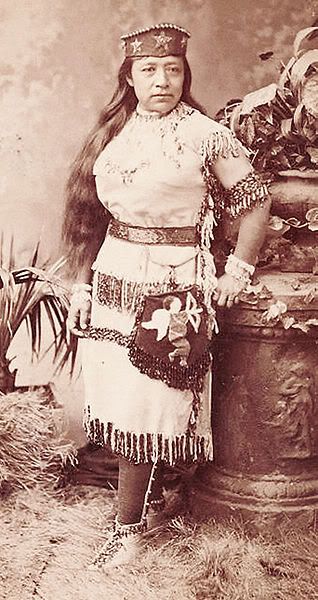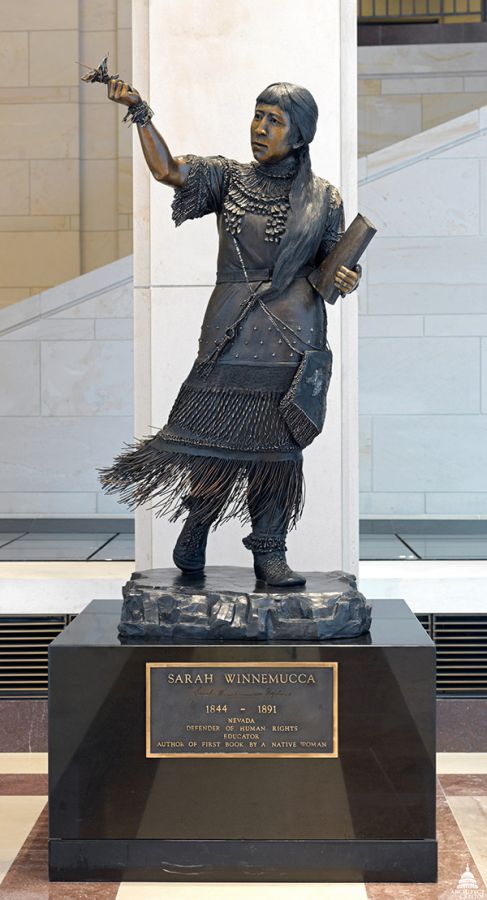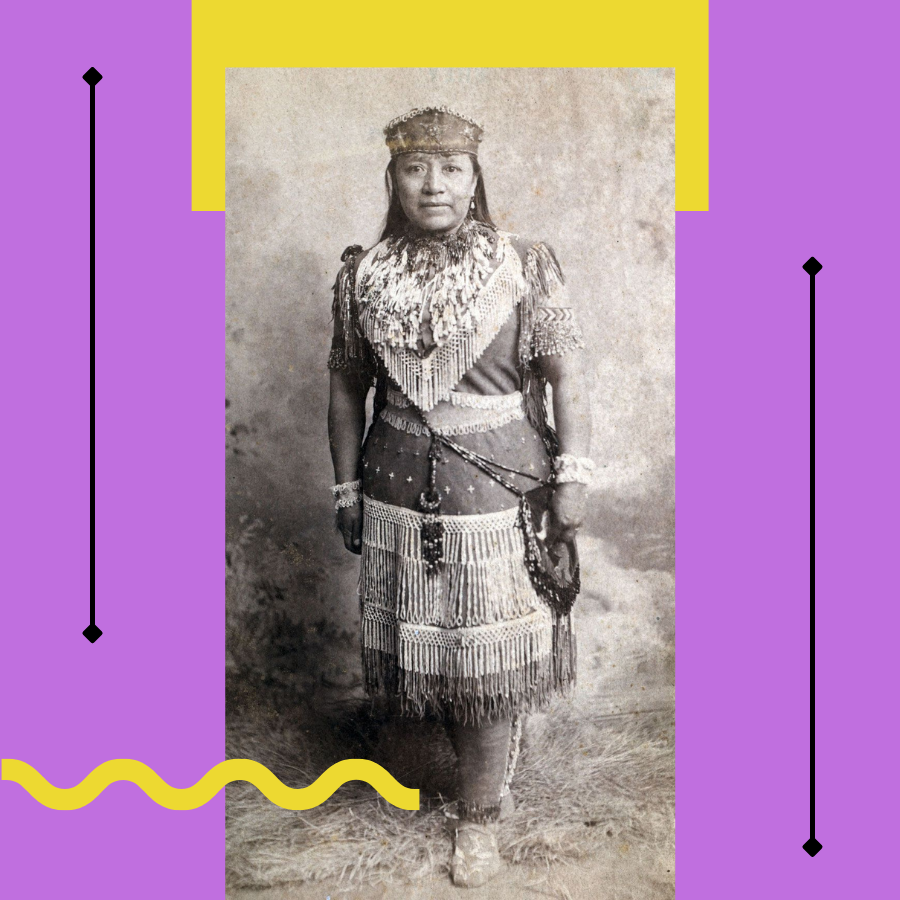“Reclaiming the Canon” is a series of posts that aims to bring attention to historical women who are often excluded from the narrative of their field — whether in literature, music, science, or other areas. Each post features a woman whose name we feel everyone should know. Readers are strongly encouraged to explore further resources, spend quality time with primary sources when possible, and self-educate — because re-claiming the canon starts with you!
[cw: violence against Indigenous peoples]
Who Was Sarah Winnemucca?
Sarah Winnemucca was a Northern Paiute writer and activist who lived from 1844-1891. She mainly lived in the western United States (born in the area that would become the state of Nevada during her lifetime, she also lived in California, Oregon, and Idaho), but she traveled extensively along the east coast and to Washington, D.C., to lecture and advocate for the rights of Native Americans.
Winnemucca’s book Life Among the Paiutes: Their Wrongs and Claims was published in 1883 and was the first memoir in English authored by a Native American woman. In publishing this book, Winnemucca was also the first Native American woman to secure a U.S. copyright registration.

Her Life
Born Thocmentony (meaning “Shell Flower”), Sarah Winnemucca was the daughter of Chief Winnemucca of the Paiute Nation and the granddaughter of Chief Truckee. Chief Truckee was interested in finding ways to work together with white settler colonizers. When Sarah and her sister were children, her grandfather invited them out to California to live with a white household. Because of this experience, Sarah Winnemucca learned to read and write in English, and she became comfortable going back and forth between the Paiute and the white worlds she was familiar with.
When the Paiute War broke out between the Paiute and white settler colonizers (killing the patriarch of the white household where Sarah had lived), Sarah and her family escaped the fighting by traveling west and performing on stage as “A Paiute Royal Family.” Sarah played a fictionalized version of herself as a princess. A few years after the war, Sarah and her father were away when a Nevada Volunteer cavalry attacked their camp, killing 29 out of 30 people in their band — including Sarah’s mother and other members of her family.
After the traumatic experiences of her childhood, Sarah Winnemucca embarked on an active career as an advocate for the rights of Native Americans. She used her English skills to communicate the plight of the Paiute people to white people, including as an interpreter in the Bureau of Indian Affairs, as an interpreter and guide for U.S. forces, and as a teacher for imprisoned Native Americans. When the Northern Paiute bands were later interned in a concentration camp, Winnemucca went to Washington, D.C., and successfully lobbied for the release of her people from the camp. She continued to travel extensively along the east coast to give lectures on the Paiute people and to bring awareness to the injustice experienced by Native Americans.
After the publication of her memoir Life Among the Paiutes, Winnemucca returned to Pyramid Lake in Nevada with her brother. They built a school for Native American children in an effort to promote the Paiute culture and language.
Her Contribution
Sarah Winnemucca was a talented, prolific writer with an accessible and conversational writing style (her memoir is filled with casual sentences like, “Oh, how happy we were!”), which likely supported her advocacy goals. Winnemucca saw two of her works published: her pamphlet “Sarah Winnemucca’s Practical Solution to the Indian Problem” (1886) and her book Life Among the Paiutes: Their Wrongs and Claims (1883). Life Among the Paiutes is a personal memoir as well as a history of the Northern Paiute people’s first forty years of contact with white people.
In 1993, Winnemucca was posthumously inducted into the Nevada Writers Hall of Fame, and in 2005 the state of Nevada contributed a statue of her to the National Statuary Hall Collection in the United States Capitol.

In Her Words
In the opening chapter of her memoir, Winnemucca reflects on her grandfather’s initial disappointment that white people did not trust him:
“I can imagine his feelings, for I have drank deeply from the same cup. When I think of my past life, and the bitter trials I have endured, I can scarcely believe I live, and yet I do; and, with the help of Him who notes the sparrow’s fall, I mean to fight for my down-trodden race while life lasts.”
-Sarah Winnemucca, Life Among the Paiutes
Further Resources
- You can read Sarah Winnemucca’s Life Among the Paiutes online at archive.org.
- Learn more about Sarah Winnemucca with the Nevada Women’s History Project.
- Sally Zanjani wrote a biography of Sarah Winnemucca in 2004.
- And Deborah Kogan Ray wrote the children’s book Paiute Princess: The Story of Sarah Winnemucca.
- Interested in Northern Paiute oral history? Check out Legends of the Northern Paiute.

